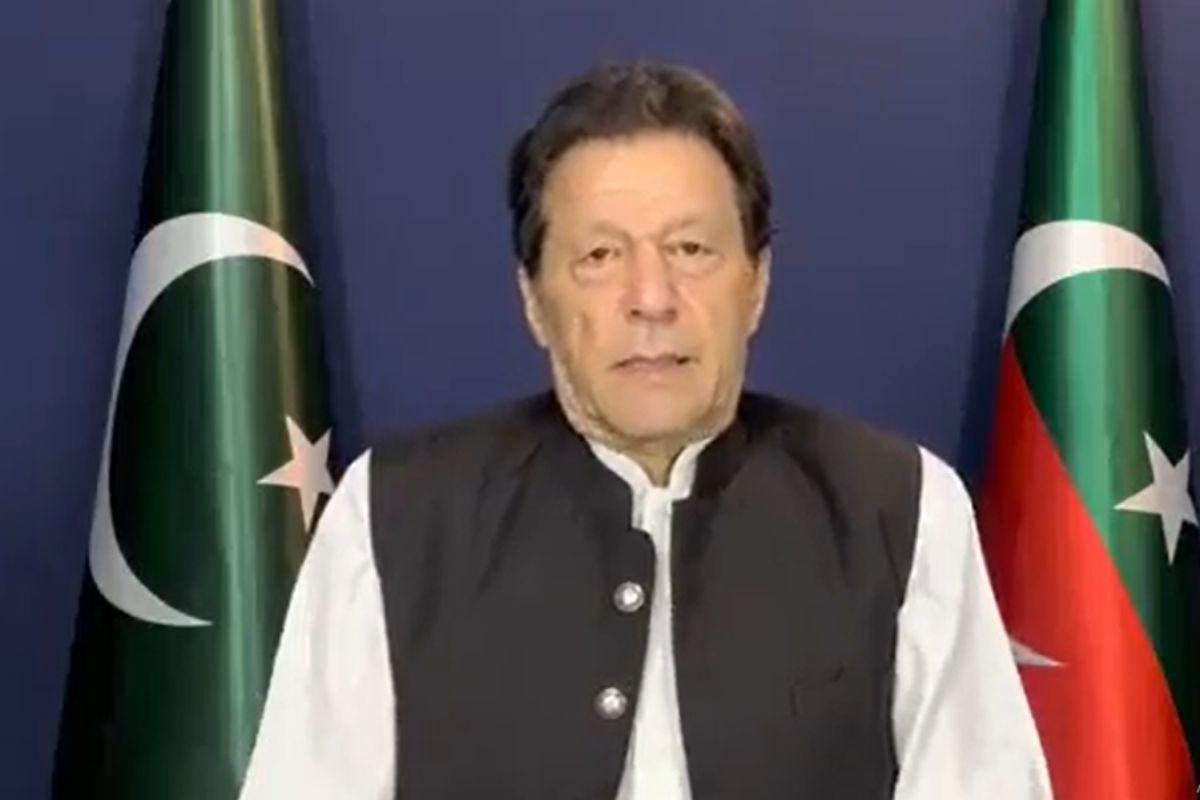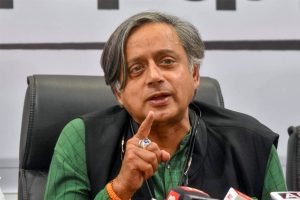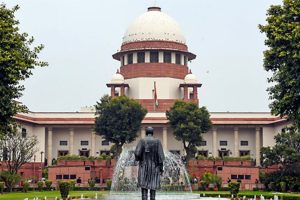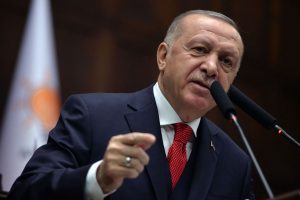Pakistan’s information minister, Atta Tarar, recently announced that the government planned to permanently ban Imran Khan’s political party, PTI, claiming it was “a direct threat to the fabric of our nation.” He also announced that the government would “seek Article 6 (high treason) proceedings against its founder Imran Khan, ex-president Dr Arif Alvi, and former National Assembly deputy speaker Qasim Suri.”
Though, subsequently deputy Prime Minister Ishaq Dar mentioned that this is still under consideration, the government appears intent on taking these steps. It is feared that initiating such an action would result in large scale riots, as Imran remains the most popular leader within Pakistan. Official reasons for this decision include foreign funding for the PTI, rioting by his supporters post Imran’s arrest in May last year, the cipher case (breaking the Official Secrets Act) as also lobbying in the US to block IMF loans and push anti-election resolutions. Imran has already been acquitted on some of these issues.
Advertisement
If processed, it would divide political parties and initiate a confrontation between the government and the Supreme Court, as the final judgement would be delivered by the courts. Interestingly, this step appears to have been initiated once the military-politico leadership realized that its attempts of tying Imran in knots through multiple legal cases are failing. Support of political allies will remain crucial throughout the process. A similar discussion occurred in July 2022, involving Imran Khan, then president Arif Alvi, speaker as also deputy speaker of the Senate for their attempts to thwart the no-confidence motion. It was subsequently dropped.
Every time the politico-military leadership has attempted to sideline Imran, it has failed. Imran’s party’s symbol was withdrawn just prior to elections, compelling his candidates to fight as independents, yet they won maximum seats, resulting in rigging of elections to reduce their numbers. Their victorious candidates were compelled to ally with a small inconsequential political group (Sunni Ittehad Council). There is outright animosity between the current army and political leadership, on the one hand, and Imran Khan on the other. The army chief, General Asim Munir, was removed from his appointment as Director General of the ISI (Pakistan’s famed military intelligence agency) on the orders of Imran Khan, as he had unearthed corruption on the part of Imran’s current wife.
Imran denies these allegations. Munir’s was the shortest tenure, in Pakistan’s history, of just eight months, as DG ISI. It was his antiImran stance which ensured his elevation as chief. He has faced Imran’s outbursts during his anti-army rantings in public rallies. The insult to the army during the riots last year was a blot on his leadership. The Sharifs have their own grudge against Imran. His treatment of Nawaz when he was in prison as also accusing the family of corruption, during his Prime Ministership and after his removal has made them wary of his return. His popularity is another cause for concern. Imran’s refusal to follow Nawaz’s footsteps and leave the country has added to his persona. Further, there is his determination not to commence talks with either the political or military hierarchy. For the current politico-military leadership, there is a fear that in case Imran returns to power, he would seek revenge. Further, his popularity would enable him to clip the wings of the army, reducing its ability to dominate internal politics, a major concern. Imran’s image as an honest leader has not been dented even by the magnitude of court cases he currently faces. On the contrary, it has grown.
With judgements slowly turning in his favour, there appear to be limited options, except taking the extreme step. Pro-Imran court judgements are the result of growing differences between the judiciary and the army. The latest was the apex court’s decision to overrule the election commission and allocate reserved seats to Imran’s PTI. The government will appeal but is unlikely to succeed. This decision conveys that despite its symbol being blocked and members aligning with another political party, the court recognizes the PTI as a legitimate group. Fearing Imran’s public support, he is re-arrested in a new case every time the courts dismiss a case or grant him bail.
There have been reports of the army-controlled ISI attempting to pressurize the judiciary for favourable judgements. These are now in public domain as also officially reported by high court judges to the Supreme Court, but to no avail. Current pro-Imran decisions by courts is the judiciary hitting back at the establishment and projecting an independent streak. The US too has criticized the government’s announcement with its spokesperson mentioning, “banning of a political party is something that would be of great concern to us.” The Pakistan establishment is considering this option out of fear and at a very crucial time in the country’s history.
Its western provinces are on fire, impacting its investments from China, while critical discussions are in progress with the IMF for a fresh loan of USD 7 billion. One major demand of the IMF has been internal political stability. Resurgence of internal violence and instability could add to difficulties and even delay disbursement of funds. However, for the current Pakistani military-political leadership it is a matter of survival. Despite being behind bars for almost a year, Imran has refused to bend. He remains openly defiant, posing a challenge. Charges of treason, which are being considered, carry a death or at best a life sentence. The fact is that a ban, and treason charges, will have to be ratified by the Supreme Court, which is currently displaying an independent streak, for which the army is responsible.
One major benefit for the establishment is that once these charges are brought, release on bail is unlikely. In case this alone leads to violence, it could open doors for another period of justified martial law. In case it does not, it enables moving on to the next stage, which is Imran’s trial. For India, nothing could be better. The current military-politico leadership is jointly pushing the country towards anarchy and turmoil only due to fear of Imran. The battle within the establishment, judiciary and executive, is bound to intensify. Pakistan will be too busy fighting public disturbances and insurgencies to be bothered about anything else. It being mired in its own mess is the best India can desire.
(The writer is a retired Major-General of the Indian Army.)
















